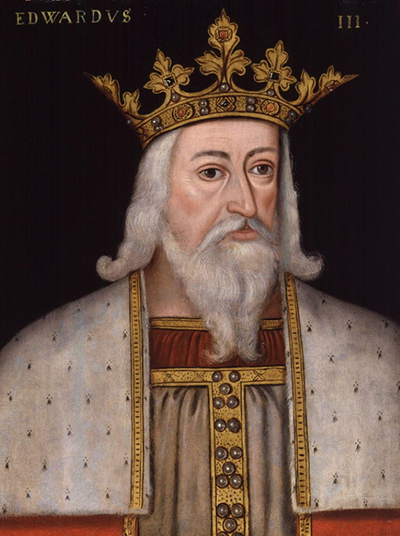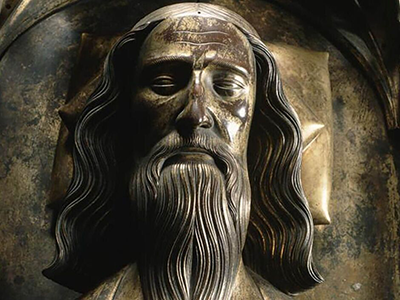



King Edward III – Quick Stats




Born: 13 November 1312
Edward III: The Warrior King Who Led England to Victory, Revolutionized Warfare, and Shaped the Future of the English Monarchy
Often hailed as a warrior king, Edward’s leadership during the Hundred Years' War and his pursuit of the English throne of France left a lasting legacy on the English monarchy and the course of European history.
Edward II's reign was characterized by poor leadership, political infighting, and military failures, culminating in his eventual overthrow by a coalition of nobles. His wife, Isabella of France, and her lover, Roger Mortimer, took control of the English government, acting as regents for the young Edward III.
Died: 21 June 1377
Mother: Isabella of France
Father: King Edward II
Wife: Philippa of Hainault
Children:
John of Gaunt
Lionel of Antwerp
Edward, the Black Prince
Edward III, one of England’s most celebrated monarchs, reigned from 1327 until his death in 1377. His reign spanned 50 years, a period marked by significant military successes, territorial expansion, and internal struggles
At just 14 years old, Edward III ascended to the throne in January 1327, but his early rule was under the control of Isabella and Mortimer. They ruled in his name, but their governance was seen as weak and divisive. The regency faced challenges from various factions within the English court, including those loyal to the deposed King Edward II.
This instability led to growing discontent, and in 1330, Edward, now 18 years old, took decisive action to assert his authority. He led a coup against Mortimer, arrested him, and had him executed, effectively ending the regency and beginning his personal rule.
This early rebellion against Mortimer demonstrated Edward's ambition and desire to take control of his destiny. It marked the beginning of his reign as a ruler determined to strengthen his monarchy and restore the dignity of the crown.
The early years of the war were marked by a series of diplomatic maneuverings, as Edward sought to press his claim on the French throne. When negotiations failed, Edward declared war on France in 1337, beginning what would be a century-long struggle for supremacy. His military campaigns throughout the war were marked by stunning victories that enhanced his reputation as one of England’s greatest warrior kings.
Edward's first major military victory came at the Battle of Sluys in 1340, where he decisively defeated the French navy, gaining control of the English Channel and effectively crippling France’s naval power. This victory established Edward’s dominance at sea and ensured that English merchants could trade freely across the Channel, while French trade suffered. The victory at Sluys set the stage for further successes on land.
The Battle of Crécy in 1346 was another milestone in Edward’s military career. At Crécy, the English army, though significantly outnumbered, employed innovative tactics that would become legendary. Edward made effective use of longbowmen, who played a decisive role in defeating the French knights. The battle proved the superiority of English tactics, and it sent shockwaves through the French court. After the victory, Edward continued his campaign in France, and in 1347, he captured the important port city of Calais after a lengthy siege. Calais would remain under English control for over two centuries, providing England with a vital foothold in France.
Edmund of Langley
Domestic Achievements and Challenges
While Edward III is best remembered for his military exploits, his domestic policies were also significant. He worked to strengthen the monarchy and consolidate royal power during a time when the nobility often challenged the crown
While Edward III is best remembered for his military exploits, his domestic policies were also significant. He worked to strengthen the monarchy and consolidate royal power during a time when the nobility often challenged the crown
In 1348, Edward passed the Statute of Winchester, which addressed issues such as law enforcement, the defense of the realm, and the responsibilities of local officials. The statute played a key role in shaping medieval English society, contributing to the development of English common law
Tomb of King Edward III in Westminster Abbey
Edward’s reign also saw advancements in trade and commerce, as well as the expansion of English influence abroad. Under his leadership, England maintained strong economic ties with Europe, especially with Flanders, and enjoyed a period of relative prosperity. However, his reign was not without its difficulties. The Black Death, which struck England in the mid-14th century, had a devastating impact on the population, with an estimated one-third of the population succumbing to the disease.
The plague caused significant economic disruption, as labor shortages led to a decline in agricultural production and a rise in wages. Social unrest also increased as the lower classes, burdened by the economic aftermath of the plague, began to demand better conditions. Despite these challenges, Edward was able to stabilize the realm, working to ensure that the kingdom recovered from the devastation caused by the pandemic.
Thomas of Woodstock
William of Windsor
Thomas of England
Nicholas Lytlington
Joan of England
Isabella, Countess of Bedford
Mary of Waltham
Blanche De La Tour
Margaret Countess of Pembroke
Successor: King Richard II
Predecessor: King Edward II

Early Life and Ascension to the Throne
Edward III was born on November 13, 1312, to Edward II and Isabella of France. His early years were overshadowed by the turbulent reign of his father, Edward II, whose unpopular rule led to his eventual deposition and murder in 1327.
Edward III was born on November 13, 1312, to Edward II and Isabella of France. His early years were overshadowed by the turbulent reign of his father, Edward II, whose unpopular rule led to his eventual deposition and murder in 1327.
The Hundred Years' War: Edward’s Military Triumphs
Edward’s most defining achievement was his role in the Hundred Years' War (1337–1453), a protracted conflict with France that would become a defining feature of his reign.
Edward’s most defining achievement was his role in the Hundred Years' War (1337–1453), a protracted conflict with France that would become a defining feature of his reign.
The war began when Edward claimed the French throne through his mother, Isabella of France, asserting his rights as the grandson of the French king Philip IV. However, the French nobility supported Philip VI, the cousin of Edward’s late grandfather, as the rightful king.

Edward’s campaigns, though successful, were not without their costs. The prolonged warfare drained England’s resources and led to heavy casualties. However, Edward’s ability to rally his forces and maintain his leadership through these challenging years solidified his position as one of England’s greatest military leaders.
Edward reformed the English legal system, introducing measures that aimed to improve justice and strengthen law enforcement. His policies emphasized the importance of royal authority and the stability of the realm.
Later Years and Decline
As Edward III grew older, his reign became increasingly marked by internal strife, and he was less directly involved in military affairs. The rising power of his son, Edward, the Black Prince, shifted much of the military responsibility to the prince, who led the English forces in France during the latter part of the Hundred Years' War. The Black Prince’s military successes, including his victory at the Battle of Poitiers in 1356, continued to uphold the family’s reputation for martial prowess.
As Edward III grew older, his reign became increasingly marked by internal strife, and he was less directly involved in military affairs. The rising power of his son, Edward, the Black Prince, shifted much of the military responsibility to the prince, who led the English forces in France during the latter part of the Hundred Years' War. The Black Prince’s military successes, including his victory at the Battle of Poitiers in 1356, continued to uphold the family’s reputation for martial prowess.
Edward III’s later years were also overshadowed by the growing influence of his court favorites, such as the powerful minister John of Gaunt. Additionally, the monarch’s health began to decline in the 1370s, and he became less active in matters of state. The final years of his reign were marked by political struggles and a weakening of central authority.
Edward III died on June 21, 1377, at the age of 64, after a reign of 50 years. His death marked the end of an era for England, and he was succeeded by his grandson, Richard II, the son of the Black Prince. Edward’s death left England at a crossroads—though his legacy as a military hero and reformer endured, the later years of his reign had laid the foundations for political instability that would continue to affect the country for years to come.
Legacy
Edward III’s legacy is one of military glory, political reform, and territorial ambition. His reign saw England’s rise as a major European power, particularly through the English victories in the Hundred Years’ War. His use of the longbow and innovations in military tactics revolutionized warfare in medieval Europe. The success of his campaigns in France, including the capture of Calais, left a lasting imprint on England’s military and political history.
Edward III’s legacy is one of military glory, political reform, and territorial ambition. His reign saw England’s rise as a major European power, particularly through the English victories in the Hundred Years’ War. His use of the longbow and innovations in military tactics revolutionized warfare in medieval Europe. The success of his campaigns in France, including the capture of Calais, left a lasting imprint on England’s military and political history.
Domestically, Edward worked to solidify royal authority, overseeing important legal reforms and ensuring that England remained a formidable force in Europe. His establishment of the Order of the Garter in 1348, a chivalric order designed to honor the highest-ranking knights, remains one of his most enduring contributions to English society.
Despite the internal challenges of his later years, Edward III’s reign is remembered as one of the most significant periods in English history. His military achievements and efforts to maintain royal authority helped to shape the future of the English monarchy and set the stage for the conflicts that would define the following century.
Edward III’s establishment of the Order of the Garter remains a significant part of the British monarchy today. The order continues to be the highest order of knighthood in the UK, with members including the monarch, members of the royal family, and other distinguished individuals.
Edward III’s reign was a complex period, one of both glory and hardship. His strategic mind, military successes, and political leadership have cemented his place as one of England's greatest kings, and his legacy continues to influence British history to this day.


